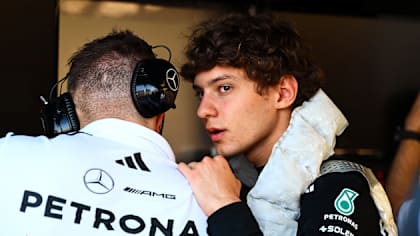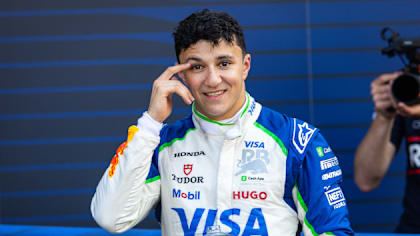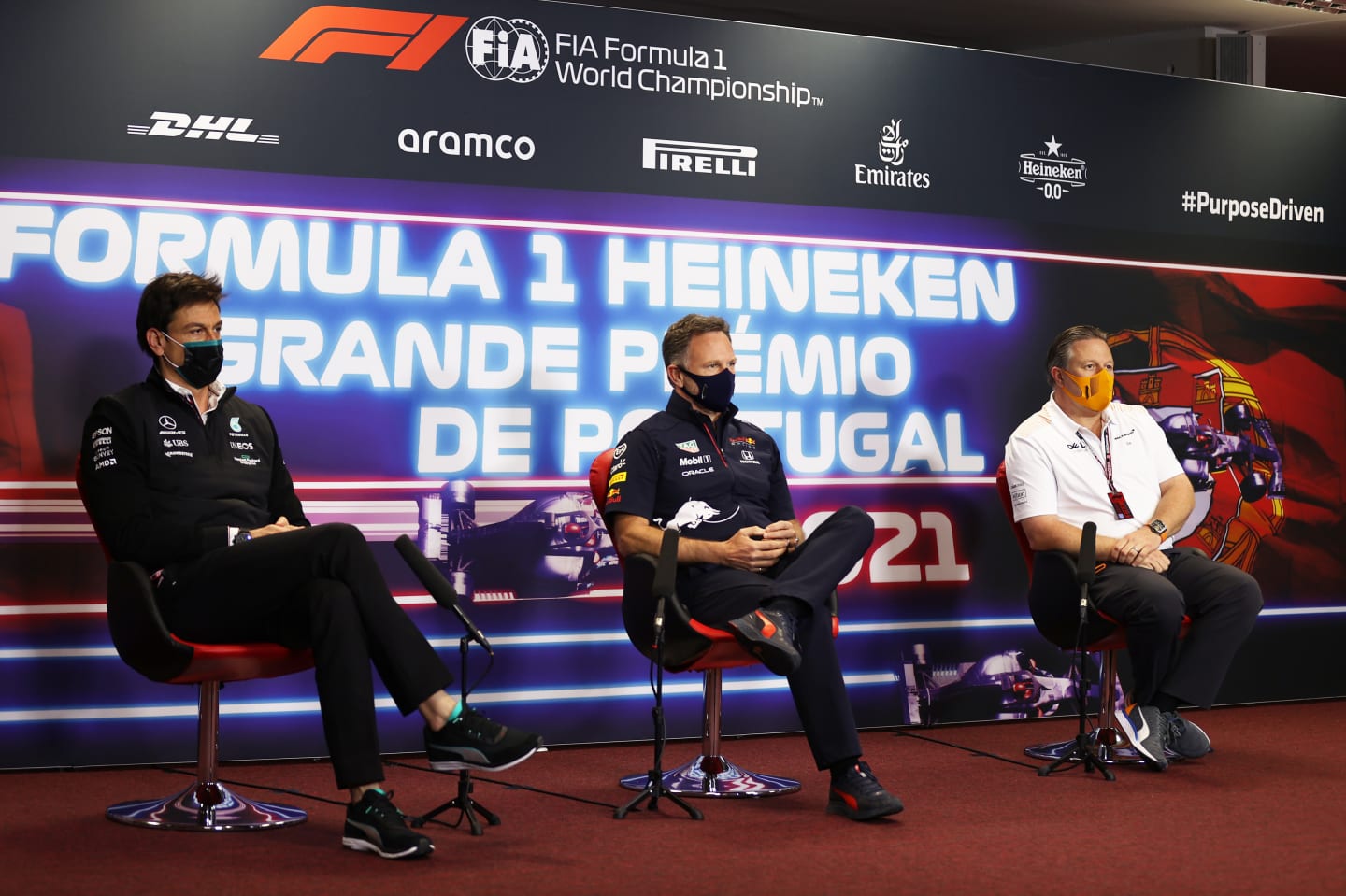
News
FIA Friday press conference – Portugal
Share

TEAM REPRESENTATIVES: Toto WOLFF (Mercedes), Christian HORNER (Red Bull Racing), Zak BROWN (McLaren)
PART ONE
Q: Zak, you published a letter yesterday outlining what you feel needs to happen to continue Formula 1’s growth. Why did you feel the need to write that now?
Zak Brown: Well, I think Formula 1 is on a great trajectory. Liberty has done an excellent job since they have acquired the sport, of continuing to move us forward. We have a variety of new agreements in place, which I think are all much better than they have been previously – but I think we still have a long way to go. I’m excited about all the opportunities Formula 1 has ahead of it – but I think it’s important as CEO of McLaren and very committed to the sport that we put out there our opinions on what we think is in the best interests of the sport, to ultimately grow the sport, to get more fans, which will have more countries wanting races and more sponsor partners etcetera. So, I though we’d lay out what I see as a handful of issues that still need to be discussed and addressed.
Q: And what sort of response have you had from teams?
ZB: I’ve had a lot of positive response from our partners, fans. I’ve not spoken with many of the teams specifically about it. Those various topics, I’ve spoken to the majority of teams on over the last two, three, four years and I would say, a lot of support for various agenda items in there. Certainly I’m sure not unanimous because of the interest all of the individual teams understandably have – but that’s why I think we need to change some governance to put a little bit of power back in the hands of people that are exclusively working in what’s in the best interest of the sport – because it’s understandable teams will always try to work as hard as they can to retain what they perceive to be some sort of competitive advantage.
Q: And just looking at your on-track performance Zak. Great to see Lando going so well, at Imola in particular. Daniel seems to have struggled a little bit more. What are his issues?
ZB: I just think he needs a little bit more time in the race car. Winter testing was cut in half this year. We had the disadvantage, if you like, of having to change power units. So we had to learn, that was a very smooth transition, Mercedes was very well-prepared and easy to work with, so that went seamlessly – but we did have to spend some time on integration. So I think he just lacks a little bit of seat time. We’re only two races into it, so I’m not worried whatsoever.
Q: A question really for Toto and Christian now. It’s so tight between Max Verstappen and Lewis Hamilton. They’re only separated by a point for fastest lap. Is this battle upping the level of intensity for both of them?
Christian Horner: I think it’s… look, we’re two races into a 23-race calendar, so it’s fantastic the first two races have been as close as they have and I’m sure for all the fans and followers of Formula 1, they’d love to see another 21 races like the first two have been. I think that adds, hopefully, an additional pressure and it’s going to be interesting to see how it pans-out. I think it’s far too early to get a clear statement of form at the moment. That’s going to need another couple of races but by the time, I think, when we get to the end of Barcelona, we’re going to have much more of a clear pattern. I think the main winner out of this will be Formula 1 if it is a true head-to-head contest between the two teams.
Q: Toto, your thoughts?
Toto Wolff: Similar sort. I enjoyed – and all of us in the team enjoyed – the first two races. With all the glory and the drama narrative, that is interesting, and we’ve seen a good momentum. Particularly the audiences have grown and the interesting target groups, because there is excitement, not only at the front. You can see that in qualifying, times are pretty close and probably Lando could have been part of the top three if not for the mistake, so overall very exciting.
Q: The Constructors’ Championship is tight as well, only seven points between your teams. It could be decided by the fortunes of the drivers on the other side of your garages. How important do you see the roles of Checo and Valtteri?
TW: This first free practice was a good example of how important it is, because feedback on the two sides of the garage was similar but not as, let’s say, bad on one side versus the other one. And you can see that the car… Valtteri has done a tremendous job in also setting the times during the sessions. I think qualifying went particularly bad for him in Imola but we know that he can do these laps.
Q: Christian?
CH: Well both cars obviously score so it’s important to have both as high up as you can. I think with Checo finding his feet within the team, he started well, he drove a great race in Bahrain, qualified extremely well in Imola. Sunday obviously didn’t go his way – but I think as he becomes more familiar, he’s starting to play a stronger and stronger role within the team and, of course, the technical direction. He brings a wealth of experience and knowledge as well so, yeah, Formula 1 is still very much a team sport.
Q: Christian, this one’s for you. I’d like to ask you about the appointment of Ben Hodgkinson as technical director of Red Bull Powertrains. Why Ben?
CH: Well, obviously we’ve done our research. I think setting up the powertrain facility on campus, within Red Bull in the UK, you don’t have to look very far to see obviously the talent that there is, certainly based within the UK and, of course, the outstanding job that Mercedes have done, not just during the last seven years but the last 15 years in reality. And I think this is the first serious engine facility that’s been set-up in the UK, other than HPP maybe in the last 50 years. So, it’s a tremendously exciting opportunity and for us it’s a matter of identifying the right talent, attracting that talent, exactly as we did with the chassis side. Obviously, proximity within the UK as well is very convenient for that. So having identified the right guys, Ben was a standout-candidate for us and we’re delighted that he accepted our offer and decided to join the team.
Q: And to be clear, is this you committing to building your own Red Bull engine for 2025?
CH: I think it’s a very clear statement of intent that we’re obviously investing heavily within the facilities on campus. It’s probably the single biggest investment that Red Bull have made in Formula 1, certainly since acquiring the team from Jaguar back in 2004. It’s a great commitment and of course we’re gearing up to take on, embrace whatever the new regulations are for, whether it be 2025 or 2026.
Q: And Toto, is this an unsettling time for Mercedes, with James Allison about to stand down as technical director, Ben now leaving HPP?
TW: Well, I think the right strategic steps have been, as far as I can see, set in motion from Red Bull. I think they are going dual track with their own power unit and maybe with a new OEM joining in, and that’s certainly intelligent and the arrangement that has been found with Honda in the carrying over the IP is also clever. It’s clear that they are going to hire English engineers because it’s in the United Kingdom and there is not a lot of companies that can probably provide those engineers. So absolutely understood what the strategy is.
QUESTIONS FROM THE FLOOR
Q: (Andrew Benson – BBC) Toto, I wonder if you could explain the thinking behind the way you handled the situation between George and Valtteri after Imola. On the one hand, I wondered whether there was a risk George might be left in a slightly confusing situation with regard to what’s expected of him on the race track, in the sense of, don’t you want him to be out-performing his car and other drivers. It’s hard to imagine a 23 year-old Lewis Hamilton not going for that move – but equally, was it a chance for you to lay down some ground rules for him before he gets into a Mercedes full-time?
TW: I think I want most of it to stay confidential because I had discussions with both of the drivers. Drivers have to go for a gap. Sometimes it’s evaluating whether it’s taking a risk or not. I guess that a young driver will always go for the possibility and nothing else is expected. The question is, is there enough reaction time to evaluate who is the other car? I think not. In a way, there is never 100% blame on one and zero on the other one. It’s probably always much more nuanced and I’m really happy about the conversation that we had. There is no confusion on any side and there are no rules for any of the drivers. It’s just us giving feedback.
Q: (Scott Mitchell – The Race) Question for Toto and Christian please. Tom mentioned Zak’s open letter yesterday, one of the calls within that was to implement immediately secret voting through the F1 Commission rulemaking process, wherewith the idea being that team affiliations have got unhealthy and it would stop strategic alignment on voting. I just wondered what your respective opinions were on that please.
CH: I heard about that and I can only assume it’s because of pressure applied from the supplier. If that is the case, it is a shame. McLaren are one of the most historic teams in Formula 1, they’ve always had a big voice. Certainly when I came into Formula 1, Ron Dennis was extremely passionate on every topic and had something to say everything that obviously involved the sport. So, it would be a shame to need to go behind a secret ballot – but a team has a right to request that. But it that’s what it needs to take independent votes, then we don’t have a major issue with it.
TW: Yeah, I read the letter this morning. I didn’t know that Zak could write as presidential as he did – but it was a good letter overall. I think he addressed all of the important points. I really find it very positive that McLaren and Zak have expressed their opinions. Also, on controversial topics. I think it needs more outspoken-ness like Zak has done in this letter. I found it overall very good. In terms of the secret ballot, it’s very easy. You have seen in the past that Toro Rosso has voted like Red Bull, probably without any exceptions, and Haas has gone the Ferrari way. In our case, we have never tried to influence a team. Obviously things have been discussed when it was a common topic, like on the power unit. It’s clear that teams vote with each other and none of the teams would vote against their own interest in terms of chassis regulations. So, the idea of the secret ballot is good. I doubt that Franz is not going to take instructions, and neither will Guenther not take instructions but the attempt is obviously good: no team should be really being influenced by any affiliate or any supplier.
Q: (Dieter Rencken – Racing Lines) Question initially for Toto and then I’d like to follow-up with Zak and Christian as well, please. Toto, yesterday, in the press conference, George said that he’d used Lewis and Valtteri as much as his team-mates as he does Nicholas Latifi. If that is really the case, and assuming it’s a two-way team-mate situation, why wasn't Valtteri instructed to let his team-mate through cleanly and safely at Imola? And then I’d like to ask Zak, who doesn’t have an associate team, what does he think of what many would view as collusion between two teams? And Christian, you have an associate team: could you ever imagine instructing a driver not to overtake the other one – either a direct or an indirect instruction?
TW: I don’t know what I should really respond to such a question… I have no response.
Q: (Dieter Rencken – Racing Lines) Could you try a straight answer please?
(No response)
Q: Let’s go to Zak please.
ZB: I didn’t catch Dieter’s question. Could you repeat that? I’m sorry Dieter.
Q: (Dieter Rencken – Racing Lines) Zak, how do you see what could be viewed as collusion between two teams – in other words, saying to one driver that he couldn’t overtake another one, or shouldn’t?
ZB: You’re muffled there – so I think your question was around…?
Q: Collusion. What are your thoughts about collusion between teams on track. George Russell said that he viewed Lewis and Valtteri as a team mate.
ZB: I don’t have an opinion on what goes on in other teams and collaborations between drivers. To me, that looked like a racing accident, two racing drivers fighting for the same piece or tarmac in tricky conditions, so my own view on that was, that was a racing incident.
Q: Christian, did you catch the question?
CH: Yeah, I think I understood the question. In Red Bull’s case, all drivers are Red Bull Racing drivers and they’re assigned obviously to AlphaTauri – but there’s no instruction to work effectively as one team. There a request to respect the fellow members but that’s it. They’re free to race, and race each other hard – as we’ve seen on numerous occasions. There’s no instruction to collude or anything along those lines.
Q: (Christian Nimmervoll – motorsport.com) Toto, Paddy Lowe as a guest on Tom’s Beyond the Grid podcast that was published earlier this week. Interestingly he revealed that a lot of the discussion inside Mercedes in the first year of the hybrid era was about not looking too fast to the outside and turning down engines all the time to avoid knee-jerk reactions, in terms of the regulations. What is your personal memory of that early phase of the hybrid era?
TW: I think Paddy must have been in a different place that I was. There is no such situation that you turn back an engine just to have regulations tweaked in your direction. We were very competitive in 2014 and I think everybody could see that. It was the start of a regulatory environment that wouldn't have been changed anyway. So, yeah, maybe Paddy had that impression.
Q: (Ben Hunt – The Sun) A question to Toto and Zak in particular, as their drivers are taking part of it, but if Christian wants to give his input that’s fine. There’s a social media boycott happening, it started with the Premier League and it’s moving across various sporting organisations. Do you think that F1 has missed a bit of an own goal here (sic)? Obviously you have your End Racism campaign and various other things going on, but should F1 not have copied their blueprint going forward and taken part in this boycott. The reason I ask is obviously because Lewis is taking part, as is George, as is Lando. I just thought maybe F1 should as well.
TW: I think Formula 1 and Mercedes have shown commitment to the fight against racism all year long, not only with visible initiatives but we have launched several campaigns to increase diversity. We have invested considerable resource in setting up these programmes and we would very much leave it to the drivers to decide if they want to take part in a UK-based boycott. I think fighting against racism with the very different tools is necessary. We are Formula 1, a global sport, and it’s up to everyone to decide whether they want to join this UK initiative.
ZB: Yeah, just building on what Toto said, Lando is doing that this weekend. I believe Daniel is. We totally support our drivers in decisions and giving them their freedom to express themselves. As Toto mentioned we have a lot of initiatives around mind and mental health and supporting We Race As One. I don’t thing necessarily everyone has to do the same thing to convey the good that they are doing around the world in promoting a variety of issues. I don’t think… in this world one size fits all and people should have the freedom to express themselves when and how they feel is most appropriate and I think Formula 1 does a good job. We can do a better job, but I think we are making good progress.
CH: Not a great deal to add, Obviously, it’s a very much a UK-centric driven thing. We don’t condone racism in any way, shape or form. Obviously we follow the commercial rights holder on this and the drivers have the freedom to follow whichever action they feel suitable. So I think everything has been said.
Q: (Christian Menath – motorsport-magazin.com) A question for Toto. We were talking about Red Bull Power trains earlier. Are you concerned that you are losing more personnel from HPP to Red Bull Powertrains and are you concerned that you are losing a lot of IP going there ands this is spicing up the battle with Red Bull, even on a different level?
TW: I guess it was expected that this would happen and this is just a battleground such as the one on track. You need to acknowledge that and the last few weeks were certainly very much…
CH: Busy!
TW: …Pulling on… how do you call that? Pulling on both sides of the rope, which I enjoyed. It’s part of the competition. You need to take it as a sportsman. Sportsmanship.
Q: (Luke Smith - Autosport) We’re now a few races into the season and it’s first season operating under the cost cap. Looking up and down the pitlane, how much does it seem that everyone is on the same page compared to the cost cap. Have you seen everybody take a noticeable step down in terms of what they are bringing to races? In terms of any sanctions or penalties, I don’t know how much that has been discussed between the teams, but is everyone on the same page for that because one would imagine that a sporting penalty would obviously be a consequence for any breaches?
ZB: I think everyone is on the same chapter. I’m not sure everyone is on the same page but we will get there. The cost cap has been a challenge for everyone that was racing over what was allowed to be spent, ourselves included. It’s not easy. You have to make tough decisions. I think this year was always going to be an element of learning, so we continue to work through it. I think the FDs for all the teams, they meet quite frequently with the FIA and Formula 1 and I think generally everyone is doing a good job and I think it’s having its intended impact. I don’t think we will see it fully settle in for another couple of years, because this year a lot of money was spent last year when there wasn’t a cap in place. So I think it will take a couple of years before we see the impact of the cost cap.
CH: It’s had a very real effect. It drives efficiency. We have had to downscale to adopt the regulations. In answer to the question of penalties, I think the penalties are already clear for any breaches. There is discussion currently about procedures, which because it’s a new set of regulations, they are all being tidied up and I hope within a month everything will be clear in terms of procedures. But it’s put a key focus on value for money and costs. Formula 1 teams have perhaps not been that efficient in that area in history and I think in the past you have spent as much as you have as a budget and probably 10% more in your pursuit of performance. Now there is a hard limit and that forces and drives efficiencies and puts pressure on the situation and it’s probably no coincidence that the constructors’ trophies for the first two races have been picked up by the financial directors of both Mercedes and Red Bull. So it is playing a key role and I think ultimately that is a good thing as it drive efficiency and responsibility into the business.
TW: Yeah, I agree with Christian. Especially for the larger teams it has been an efficiency projects. Obviously there is some real hardship behind it because you needed to look at the organisation and an organisation is not a large organism, there are people behind, and that is the less enjoyable side, to say the least. Over the mid-term I guess it will help to balance out performance between the teams. As always with new regulations there are topics that need to be cleared up and specified and précised and some of the teams have expressed the wish to do that. But at the end of the day we have given each other a couple of weeks to clear that out. But from a principle, how I see it, everybody is on the same page.
Q: (Edd Straw – The Race) Christian, you talked about the statement of intent of the investment in the engine facility and obviously people are thinking it could well be a Red Bull engine, which would be a clear possibility, but it also offers you probably a unique advantage among F1 teams in that you could also join up with a manufacturer partner and tailor the nature of the partnership to their demands. So, you could do anything from doing the whole engine for them and then badging it through to them running it fully and everything in between. So how big a part of the way you are setting up this facility is that possibility and how big an advantage do you think it could be to have such a wide range of engine approaches down the line, as no other team can offer that at this stage?
CH: It’s a big challenge but it’s an exciting challenge and one that we fully embrace. I think other than Ferrari it makes us the only team to produce chassis and engine in-house and to have a fully integrated solution between both technical teams. That’s particularly exciting and attractive. We are assembling an exceptionally talented group of people together and we are only at the beginning of that journey. In terms of what that engine will be badged as, at this point in time it’s clearly focused to be a Red Bull engine. That is the commitment and that is the design group we are bringing together to focus on the new regulations. We have effectively a soft landing thanks to the IP usage we have a principle agreement with Honda with. So it’s exciting times and I think it puts Red Bull in truly unique situation, to have everything housed on one campus under one roof and to really make use of those synergies. And particularly in a cost cap world, with cost caps potentially coming into powertrains as well, it makes that achievable for a company such as our own.
1 / 7
TEAM REPRESENTATIVES: Toyoharu TANABE (Honda), Laurent MEKIES (Ferrari), Marcin BUDKOWSKI (Alpine)
PART TWO
Q: Marcin, can we start with you, please? The car seems less competitive this year than it was certainly at the end of 2020. How much of a surprise is it for you and the team?
Marcin Budkowski: Unfortunately it’s not completely a surprise because we had a few issues over the winter that we knew would affect our performance and of course we went to the Bahrain test and our fears were true if you want. So we knew we were on the back foot going into testing and then going into the first races. We are working hard on trying to improve the car. We brought some developments to Imola, we have done some more testing this morning, so we are making small steps in terms of improving the performance of the car, but the gap to the guys we’d like to fight with, the McLarens and the Ferraris, is a bit too much at the moment, so we are still working to close it but it will be tricky to do that in the next few races.
Q: It’s interesting that you made quite a few changes to the car for this year. What’s the plan? Is that to feed into the 2022 car? Is that why you did it?
MB: No, it was exclusively around the current set of regulations and taking into account the changes that have were made over the winter. A big part of the car was homologated. That was a decision we made because of the COVID pandemic last year and that was the case pretty much most teams if your want. We have tried to improve everything or change all the things we could change to make improvements. There is no particular cause for concern with the things we changed if you want, it’s just that we lost some development time over the winter and when you lose time your competitors don’t wait for you.
Q: Fernando Alonso was in great form as ever in the press conference yesterday. One of the things he said is that he is still refining his driving. Tell us about what it has been like to work with Fernando and how much do you think there is still to come from him?
MB: There is still more to come. In Bahrain, he was right on it straight away and he put the car in Q3 and everybody hailed Fernando’s return and then Imola, it went a bit less smoothly and suddenly everybody is questioning his return. It’s typical Formula 1 and you are only as good as your last race. Fernando was extremely honest. He raised his hand after qualifying in Imola and said: ‘look, the few tenths that are missing, I’m the one who needs to find them.’ People forget that these cars are extremely quick, they’re very, very difficult to push to the limit and we are seeing that with drivers that have changed teams over the winter and are struggling a little bit compared to their team-mate. Fernando has been out of it for two years. He’s done a day and a half of testing in Bahrain and straight into racing. But with his experience, his talent and his determination, I have absolutely no doubt he will get back there.
Q: Laurent, it’s been a good start to the year with Ferrari, particularly with Charles. Have you exceeded your pre-season expectation?
Laurent Mekies: Obviously we are coming from an incredibly difficult season last year so in the context of regulations that were pretty much frozen the most important thing for us was to be able to demonstrate that we could put our car back on the right direction in terms of development and luckily this is what we have seen in Bahrain and Imola. Of course, this is only a first step. We know there is a lot of work ahead of us, but it was crucially important for us to be able to demonstrate that the car could improve from where it was. Not only does it give us better lap time and better positions on the grid, it gives us confidence that we correlate better with the factory, we can prepare better for the race weekend and we can execute better the race weekend as well. So it’s a bit of a snowball effect. It’s only the very beginning of a path to recovery but it was certainly an important first data point for us.
Q: What areas are you focusing on to get more performance from the car?
LM: The key for us is to make sure we give Charles and Carlos a car they can be comfortable with and push with. Marcin just mentioned it: these cars are incredibly difficult. If you remember, Tom, a few years ago there was this train of thought that Formula 1 had become easy to drive, well, that’s completely gone now. Not only they are the fastest car in the world, they are incredibly difficult. As a result our focus is to make sure the car is consistent, the car is allowing the drivers to push and this is where our focus is to unlock more lap time.
Q: Carlos isn’t on Charles’ level, particularly in qualifying. What are the main differences between them, given that the cars are difficult to drive?
LM: You know, I think if you think back to what the winter was for Carlos and for any driver that has changed teams. One and a half days of pre-season testing and then you end up in Bahrain and I think to see Carlos performing as he did in Bahrain straight away, it doesn’t come by luck, it comes after a huge amount of preparation work. We are certainly only seeing the beginning of that. For us as a team, on top of that we are enjoying the interaction he has with Charles. They are pushing each other, they are listening to each other in terms of where the car needs to go for its development and it’s certainly a strong point for us right now, the interaction between our drivers, and it’s not something we want to leave here, it’s something we want to further develop with them and with their engineers.
Q: Tanabe-san, Honda has had a good start to the season with a win and a second place. Is your power unit performance matching your expectations?
Toyoharu Tanabe: Yes, since the pre-season test and in the two races this year the Honda PU is performing as expected. Our current performance from the car is not coming only from the PU, so both Honda and the team put in a huge amount of effort to improve our performance during the winter season. Then, I think we need to keep that momentum through the year. It is important to achieve our desire.
Q: In just two races you have already had to change some power unit-related components. Can you explain what the problems were and how concerned are you about reliability?
TT: Yes, we had several problems during just the two races. We need to replace PU on Tsunoda’s car due to crash. But we already applied countermeasures to the problems we experienced this year and at the moment we don’t have big concerns about those problems. I believe we should not have those problems again.
Q: (Scott Mitchell – The Race) Marcin, could you just please explain the nature or severity of the wind tunnel issues you had over the winter and is there any risk of a hangover where it affects in-season development or even 2022 or have you got on top of it now?
MB: I think I said in an interview a few weeks ago and it was quoted in the press that we had issues ‘with the wind tunnel’ as such and actually we had issues ‘in the wind tunnel’, is exactly what I said and that was two-fold. We had issues related to the actual changed regulations and the actual various flow features that it kind of induced on the car, and we had issues with hardware, if you want, the tunnel and the testing as well. So the consequence is not that we lost more performance than others or lost differently, it’s just that we lost time if you want, development time which is a valuable currency in Formula 1 because everybody has the same amount of testing they can do, it’s limited by regulation, so when you are trying to stabilise your aerodynamic flow features or you’re trying to get your tunnel to give you the right numbers the others, during this time, continue developing the car and put performance in it. So that’s effectively what happened. We lost a few weeks of development and weeks of development just transformed into tenths of seconds. The aerodynamic features; is this related to next year? Well, next year is a completely different ball game. It’s a completely different car, different set of regulations. In terms of improvement to our hardware and our infrastructure, it’s continuous improvement. We’ve solved our issues so we continue to invest and improve our wind tunnel and fingers crossed, we don’t get issues again next year but certainly it’s up to us to improve our understanding and our development capabilities.
Q: (Dieter Rencken – Racing Lines) Marcin, I don’t know if you’re aware of this but apparently last week Mr de Meo told the shareholders that they will be reducing the speed limit of Renault’s cars or the top speed capability of Renault’s cars to 180km/h and in fact this was reported into Automotive News, yet your car carries Renault E-Tech on the engine cover. Is this not a bit a contradiction in terms that on the one side Renault can’t be seen to be going quicker than 180 yet on the other side you brand it as a high performance engine?
MB: Well, I don’t think it’s going to reduce the speed of our F1 car, at least, not that I’m aware of. We are comparing apples and pears here. Reality is we are comparing road cars and the specificity of road safety and the issues related to that to motor sport and I don’t think we should make the two really. We are here to compete. The technology we are using on our race cars here and Formula 1 cars is a hybrid engine as you know. We are putting more and more hybridisation in our road car models. That’s what matters is we are making our road car engines more efficient, using the learning and technology we developed in Formula 1.
Q: (Andrew Benson – BBC Sport) Marcin, why did the issues – to go back to them – come up now and why did they not affect last year particularly when you were making gains with that car, right the way through to the end of last season? It seems to be a slightly confusing picture.
MB: Your refer to the tunnel issues I just talked about? Part of the issues I mentioned was related to the change of regulation, which I know other people struggled with as well for potentially different reasons or the same. I know what we experienced, I don’t know what other people experienced during the winter, and part of it was just hardware issues, if you want, and they are not related to time or… you make changes, you improve your tunnel, you try to improve the way you test and sometimes you hit problems while doing that so there’s no particular reason. It’s just that the two unfortunately happened at the same time.
Q: (Luke Smith – Autosport) Marcin, Zak Brown yesterday published an open letter on McLaren’s website, talking about a number of issues in Formula 1. One of them regarded the voting structure at the moment and he said that F1 would do well to move to a secret ballot voting system so that there weren’t these unhealthy partnerships between teams and perhaps pressure being placed on smaller teams. Renault, given that it’s a true independent as an OEM in Formula 1, obviously you’ve got no affiliations anyway which makes you quite well positioned to talk about this. What do you think? Do you think F1 would do well to go to a secret ballot voting system? Would it avoid some of the issues in these political battles?
MB: As you mentioned, we are an independent team and therefore we actually don’t have an issue with other people seeing what we are voting for because our positions are clear and well known to the FIA, F1 and the other teams. But not everybody is in this comfortable position of being able to vote in a completely independent way and this is exactly what Zak raised, so we’re in favour, not because it’s going to change anything for us but because we believe that every team should be voting for their best interests, what’s best for them and we’ve seen certain situations in the past, ones that Zak referred to, where some teams seem to be voting against their own interests and that’s not good for Formula 1. We need to keep the balance right if you want and you can’t have teams voting against their interests because of affiliations, as they call them. I think you should ask the question to my colleagues as well.
Q: Laurent, your thoughts please?
LM: The secret ballot option is in the governance, has been in the governance for a long while. It’s just a fact that perhaps we didn’t use it very often or certainly in the last few years we haven’t done so. It’s good to be able to use it. If we do or not, we’ll do it systematically or not, it’s up to any teams to request a secret ballot on any question or on the questions. It’s already a mechanism that is in the governance with the FIA and F1 so we are in favour of it. You know whoever is not comfortable with an item that needs to be voted, it should raise a hand and make sure we get a secret ballot. If it’s like that all the time, we are always happy so for us it’s a good thing for the sport and we’re fully supportive.
Q: (Scott Mitchell – The Race) To all three, slightly broader one on the subject of team radio. Davide Brivio says that one of the biggest differences that he’s noticed is just how much radio is used in Formula 1. I just wondered, in your respective opinions, are we at a point now in Formula 1 where we could dial back the amount of radio communication, or would that require significant changes to regs or even the make-up of the engines, to make them a bit simpler to operate?
LM: I think it’s fascinating for the fans or at least for every people we talk to and when they these conversations, when they hear the type of exchanges between the drivers and the pit wall, I think it’s a fascinating thing. I think it’s great that it’s now fully open and broadcast. I’m not sure that we should reduce or remove that. I think it’s striking to see the capacity of the drivers to be able to exchange with their engineers as they are driving as fast as they can around the track. It’s part of their skill set. It’s probably also coming with the next generation, with the younger guys that are able to do that while driving the car so for us we think it’s a great thing. We have tried in the past to cut down this communication but I think we all moved back very quickly from that because it’s just a small part of the show that we remove from the people watching.
MB: Yeah, I agree with most of what Laurent said. Additionally, there is the fact that we have the link, if you want, between the engineers and the pit wall and the driver means that there’s a number of other conversations going on in the background before we actually communicate or ask the driver to do something and that’s part of what Davide is referring to. It’s not on the fact that we communicate with the drivers during the race and therefore give them indications or exchange on things like tyres and strategy, but there’s also an awful lot of other channels going on. You see on the pit wall there’s all the intercom channels – I think I have 24 channels on my pit wall setting – which are chatter on how to make things better. Then it’s channelled into very few messages actually going to the driver, it’s part of Formula 1. There’s a huge complexity and part of it is optimising the car performance, part of it is making sure the car is safe on the track, part of it is giving indication to the driver not only of performance but also on traffic and things like this. It’s difficult. As Laurent said, we tried in the past to clamp down and it was a little bit artificial, if you want, it wasn’t natural to do that. There were some suggestions that we should make more channels available rather than less and some of our internal conversations and I think for us we’re not really comfortable with because there’s lots going on in the background but let’s explore actually how we can engage the public more because I think the people, the fans, the hardcore fans that follow everything, they would love to hear some of the conversations going on in the background.
Q: Tanabe-san, would it be possible to simplify the engine, to cut the need for so much communication with the drivers?
TT: The engine side, the current control is very complicated. So during the race, basically we set our strategy in the beginning of the race and then in terms of any problems or unexpected things happening during the race, then radio communication is very important for the PU side as well.
Q: (Laurence Edmondson – ESPN) Marcin and Laurent, I wonder what your views are on sprint qualifying and have your teams been able to simulate what the races might look like? There seems to be a bit of a concern that if your driver is running, say, P8 there’s not huge incentive to push for P7, so are we were going to get the exciting racing that the fans were hoping for?
LM: Well, at first we are big supporters of the new sprint qualifying format. We already pushed for it last year, if you recall. Somehow it’s been delayed one year but we are very happy that we get to try it this year. You are right, there is no guarantee that we don’t find small loopholes here and there that defeat, a little bit, what we are trying to achieve but we are all for a more exciting format. If there is a way to make the sprint qualifying format even more exciting in the development for next year, we will be supporting it so yes, we have been doing collectively, with all the teams, with the FIA, with F1, quite a few simulations to get to this set of regulations. It doesn’t mean that they are without any loopholes or without any items that we will want to alter but certainly very happy to go for it and see what it does and make them better for the following year.
MB: Similar position, really, but our view on it is let’s try, what’s the downside. I know there’s a lot of hardcore fans who think that the format shouldn’t change because why? It’s a good format now but effectively we still have qualifying, as we have now, we still have the race and we’re just adding something and that something is extra racing that replaces a practice session and I know there is concern that part of racing might be a bit dull because there’s not tyre changes or strategy but equally every time you put twenty race drivers in these cars on a track things can happen and I don’t think it’s going to be very different to races, we will have some very exciting sprint races or sprint qualifying races and we’ll have some boring ones but reality is, beyond what we all thing in terms of our relative competitiveness, for all the people at the track, they will see qualifying on Friday, they will see a short race on Saturday and they will see a real race on Sunday and I think if I was a fan in the grandstand, it sounds pretty exciting, it sounds pretty good value for money for a three-day ticket.
Q: (Dieter Rencken – Racing Lines) Marcin and Laurent, what sort of criteria will you apply this year to decide when to stop development on the 2021 car and move across to 2022, particularly Laurent because Ferrari used to have this big budget so they could afford to do two cars simultaneously but obviously that whole ball park has changed for this year?
MB: It’s a question we ask ourselves every year and as Dieter rightly says you have a limited amount of resources and you have to make your choices. We certainly have a bit less resources than Ferrari or the top teams to do that so we are more used, if you want, to having to make difficult decisions and difficult choices. The reality is just two criteria: one is, at the moment, the ’22 regs are very, very immature and every time we actually go in the tunnel and testing we have pretty significant gains so that means it’s a very fast evolving prototype because it’s so immature. And at the same time, the gains we are making on this year’s car because of relative regulation stability are quite small. So we have to make a call between how much longer can you work on this year’s car for potentially small gains, against what are you going to sacrifice for next year and once you approach it this way, it’s fairly clean that there’s more to gain, working on next year’s car than there is to gain on this year’s car, and it’s painful because we are all racers and we all want to – especially when we’re in a catch-up game – to actually accept that we’re not going to develop this car for as long or as much as we would like to but in the big picture that’s the right thing to do.
LM: Very similar here. I think Mattia consider it last week. It’s for us very clear, the vast majority of our resources are on 2022. It’s an efficiency race now. We have to chose, we have made our choice and we are pretty much on full push on 2022. It doesn’t mean that you will not see things coming here and there but certainly the last majority of the effort has switched already. As Marcin said, already on one side it’s painful because the gaps are small this year but on the big picture it’s clear for us where the strategy needs to be pushing and that’s for next year’s car. Again, it doesn’t mean that we will not have a good fight with the midfield during the next twenty races but we’ll have to do that on a race-by-race basis without counting on the flow of parts coming.
Q: (Chris Medland – Racer) Marcin, a big focus at the start of this year has been on aero issues and rate concepts across different teams, but the two guys next to you seem to have made bigger changes to their power units than yourself and Mercedes did over the winter. Is that something you’ve seen play out in terms of performance and the pecking order in the early part of the year?
MB: It is true and it’s early days and we all do GPS analysis and competitiveness analysis; the reality is quite tricky to do and you need the data from a few races to build a good picture but yeah, we kept pretty much the same power units than last year. We’ve done some small evolutions to it and that’s less than what our competitors did. It was a strategy, we’re having a completely new power unit for next year and we’re talking about our arbitrating the ’21 car with the ’22 car, well, it’s the same for us. We have limited resources on the engine side and we need to chose our path carefully and we felt that it was a bigger gain to have in terms of producing a whole new power unit for next year and if the sacrifice was to keep the same power unit this year then it was worth doing. As a result, we are suffering a little bit this year in terms of competitiveness but you have to use your resources in the smartest way and that’s the choice we had to do.
LM: For us, for sure, we were trailing the field last year in terms of PU performance. It was a big focus for us for this year, especially in context of the chassis side was actually pretty much so we got some of the performance back so we have closed the gap a little bit compared to our competition. It’s not enough, we are still pushing hard to see what are the next steps and how to close it further but it was certainly part of the needed improvement that we brought to this year’s package.
TT: I think it’s a little bit difficult. You cannot tell only PU performance so both Honda and the teams put a big effort during the winter. It comes from that, so we are basically happy with our current PU performance but we are thinking it’s not top-level yet so we keep pushing.
YOU MIGHT ALSO LIKE
News Victor Martins to make F1 weekend debut as Williams confirm F2 racer for FP1 in Barcelona
News Wolff reveals Williams boss Vowles sent him an apology text during Monaco GP
News ‘There was nothing more I could have done’ – Antonelli searches for positives after ‘difficult’ Monaco weekend
News ‘Liam helped me massively’ – Hadjar praises team mate Lawson as he hails ‘perfectly executed’ Racing Bulls strategy in Monaco
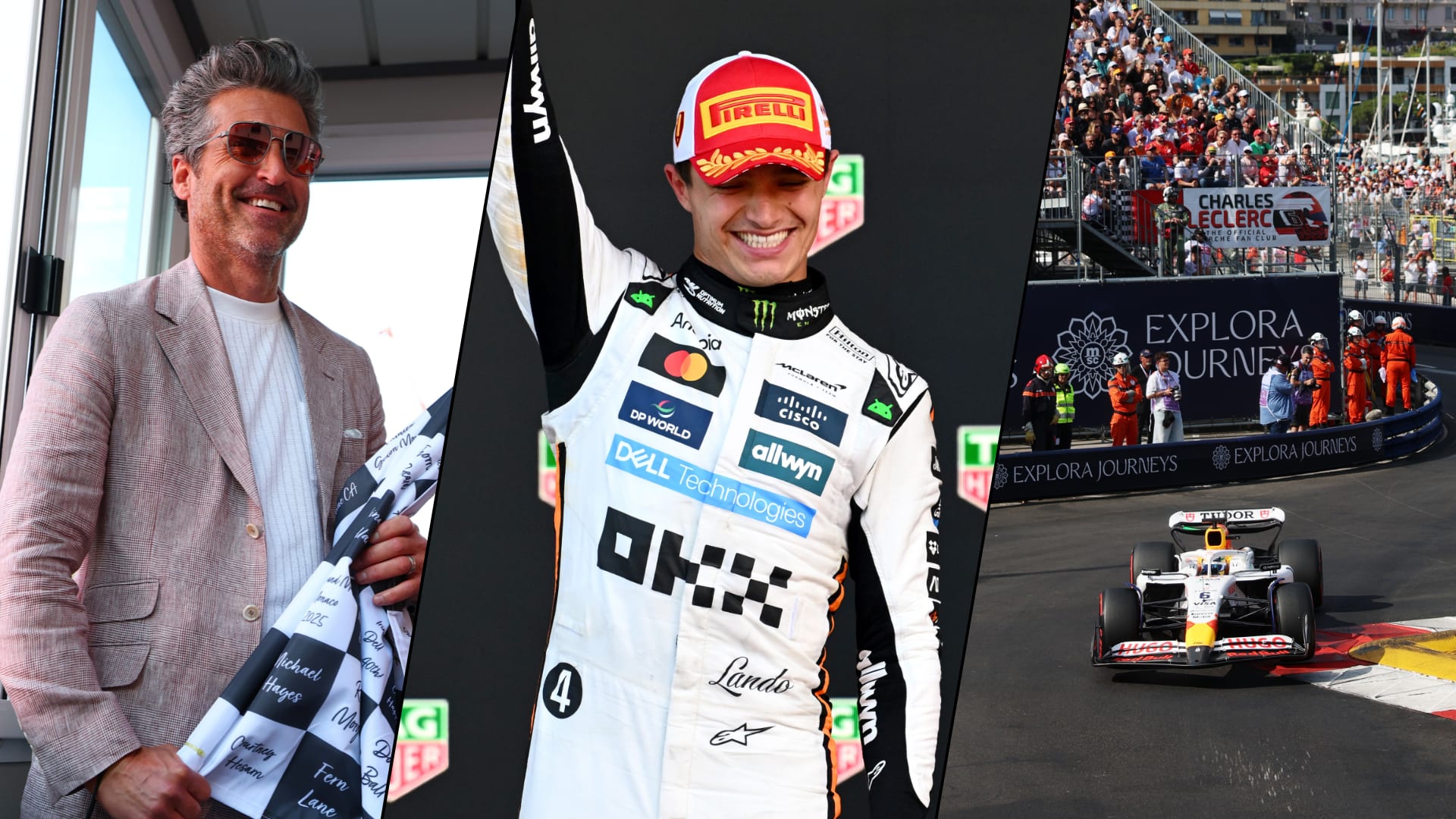

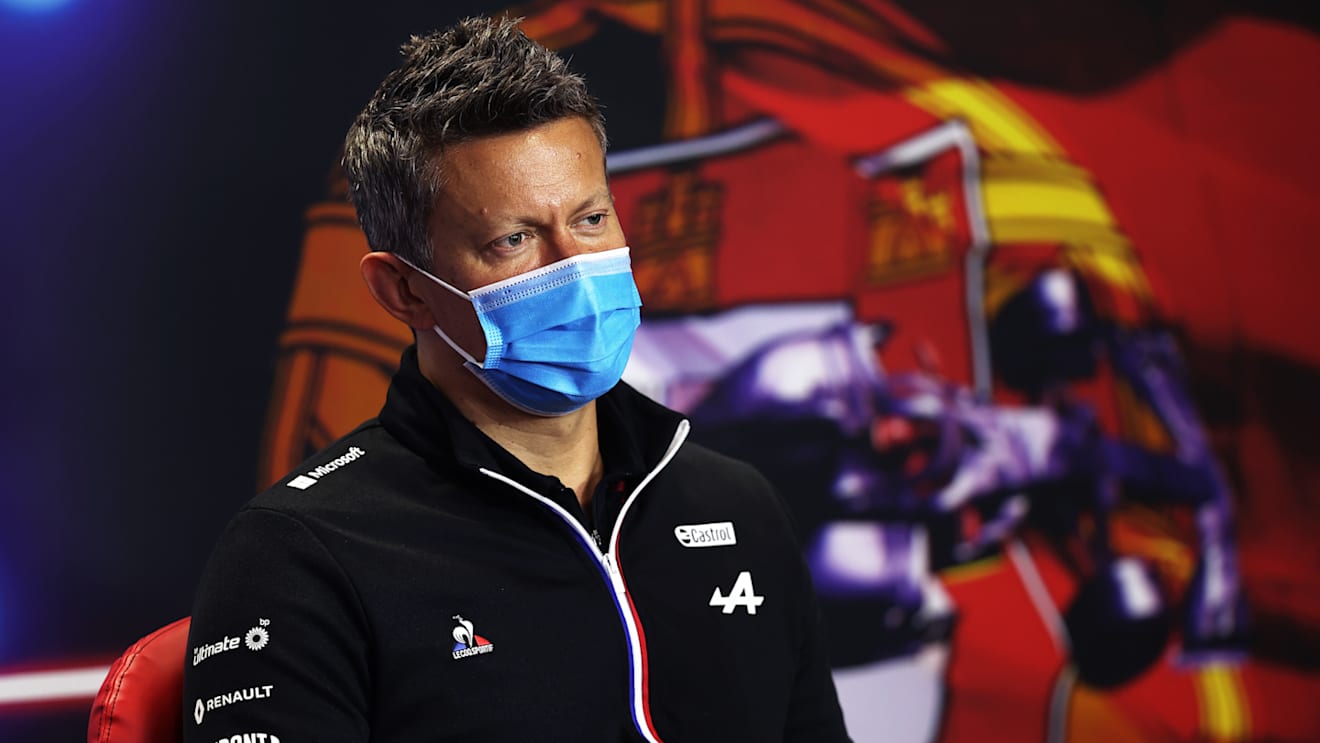

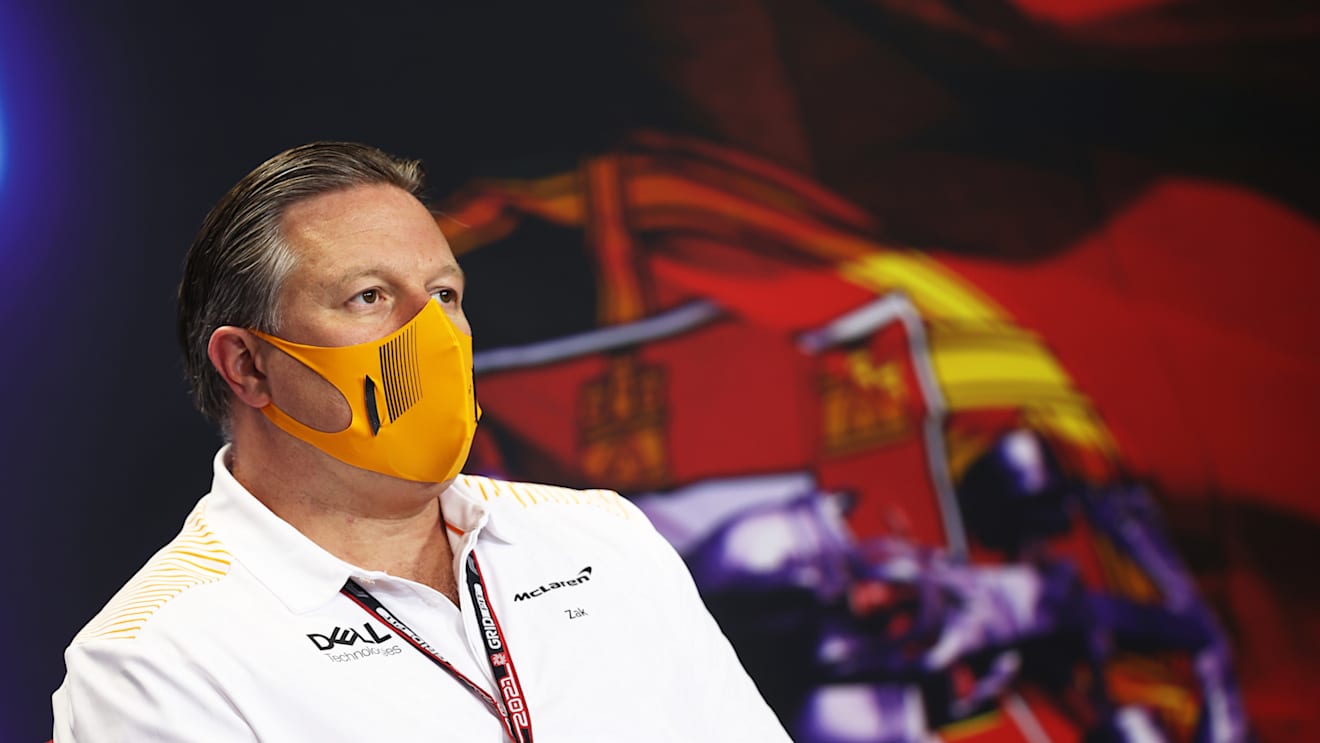
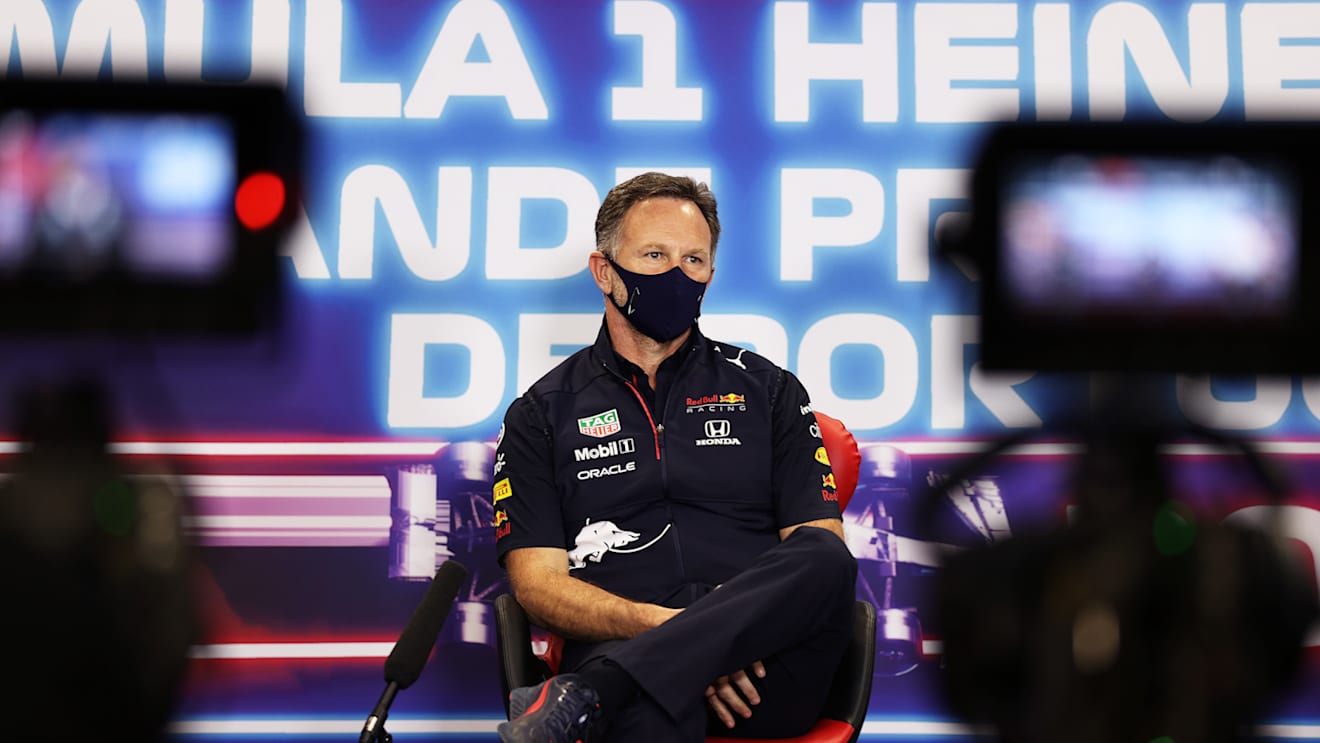
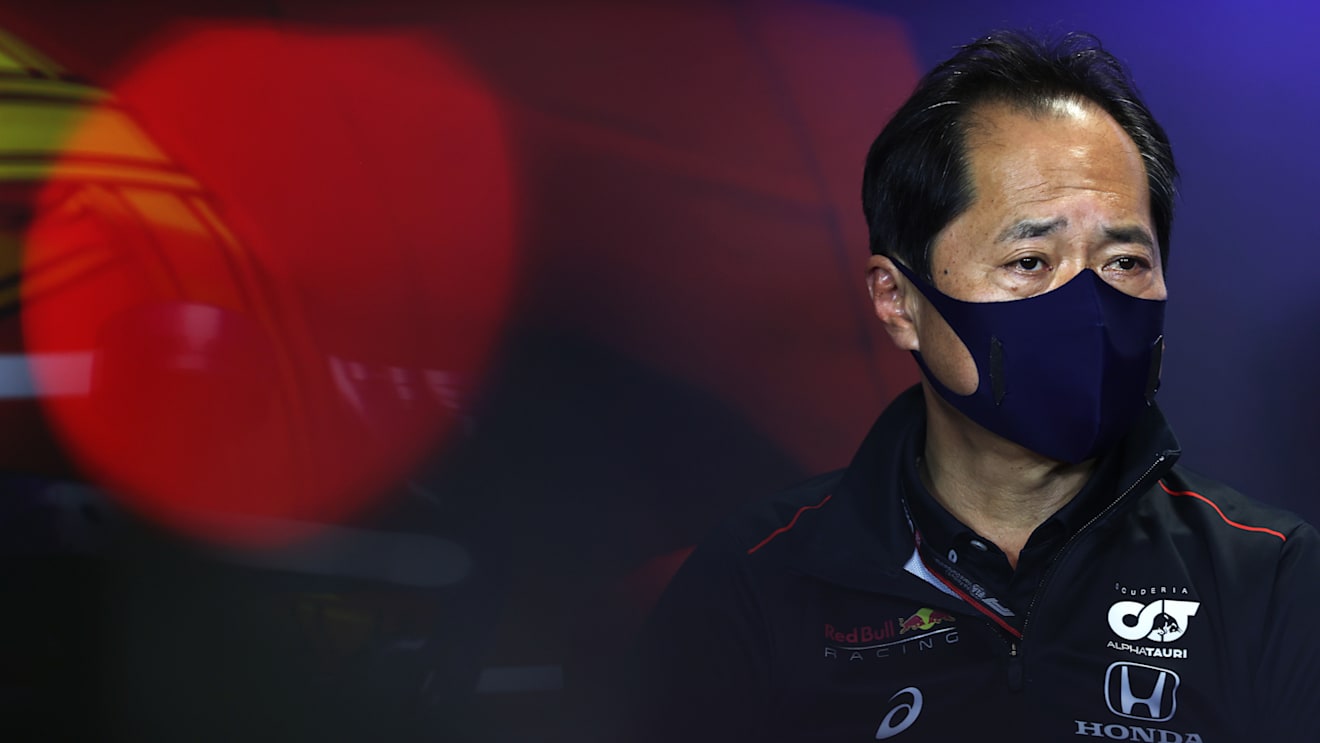
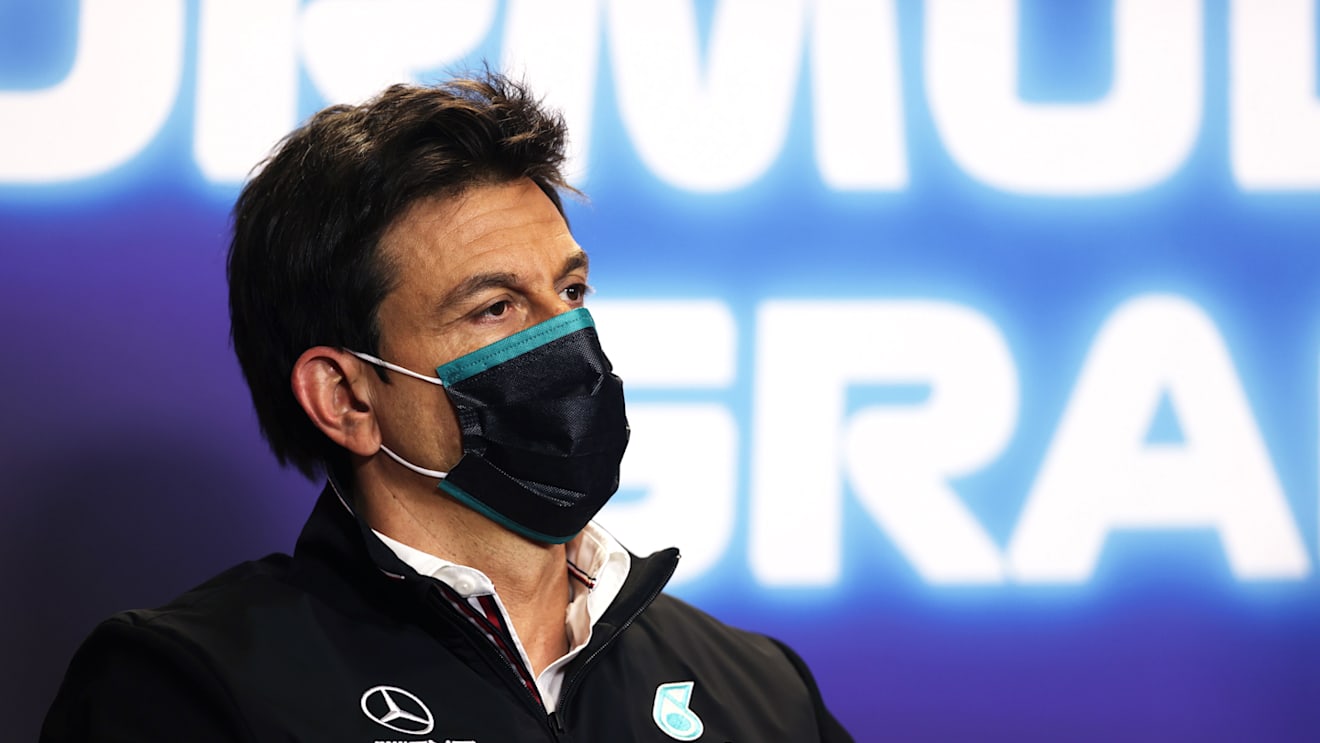
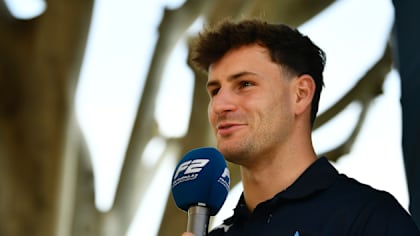
)
